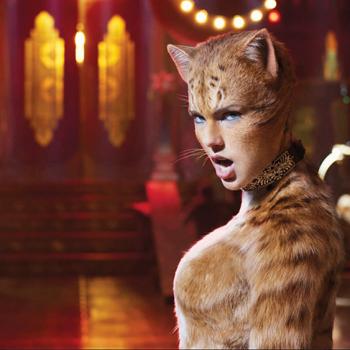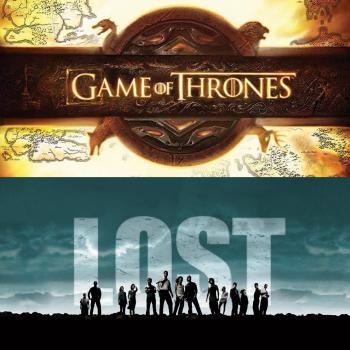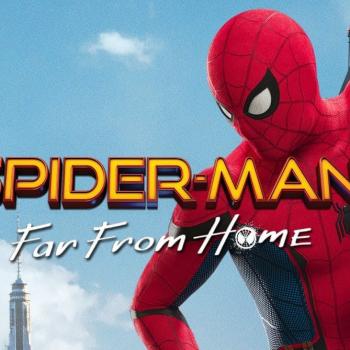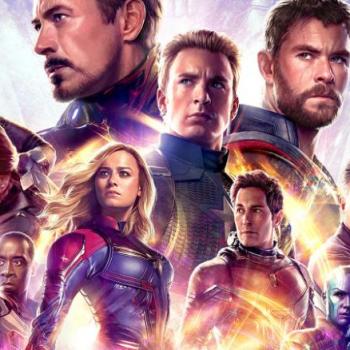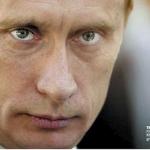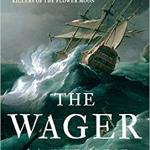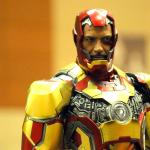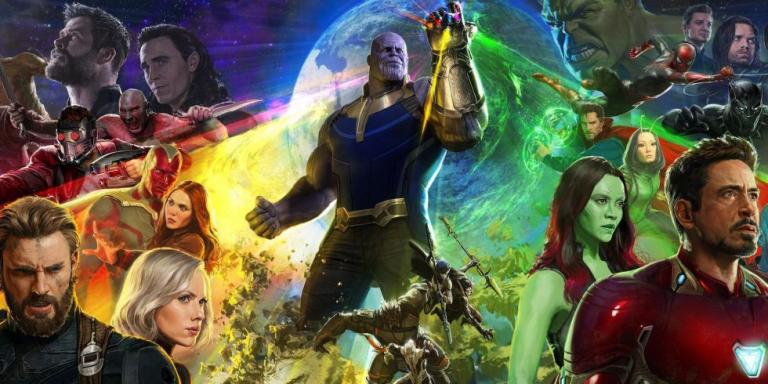
Warning: So many spoilers. For the whole MCU. Probably.
If you were thinking about beginning your Marvel movie watching with Avengers: Infinity War, allow me to say: don’t. It would be akin to watching a certain crock pot episode of This Is Us without context. Or the end of season 5 of Buffy without knowing what came before. Or, well, being that person who walks into the living room right at the end of the movie and starts asking questions.
If you’re going to watch the MCU, start at the beginning.
For everyone else?
How awesome was that?!?!?
Why the Marvel Cinematic Universe Works
The esteemed Steven Greydanus of Decent Films criticized Infinity War – and by extension, the MCU – for not behaving like stand-alone movies, and he may have a point. Technically, for example, a trilogy is meant to be three separate stories, not one story broken into three pieces. Beowulf is a trilogy. The Lord of the Rings is not. The Chronicles of Narnia is actually a heptalogy. Harry Potter is not.
And the MCU is a curious hybrid: more akin to the serialized movies that presaged television, with some stand-alone movies (any origin story), and increasingly more serialized content (every movie that isn’t an origin story).
For those purists who like their trilogies (or dodecalogies) entirely self-contained, Infinity War is a total wash. But for those who positively live for interconnected stories, Infinity War is the turning point we’ve all be waiting for.
It’s clear that Marvel depends, in fact it banks on the fact that every ticket holder is familiar with at least half if not all of the main and supporting characters, giving no introductions to anyone, referencing events that happened in other movies, and even ending the credits with two characters whom audiences haven’t seen for a while and who weren’t in the main movie at all.
I’d wager, considering the box office returns, that Marvel’s gamble is paying off.
But why?
Of Gods and Men
Why is Marvel’s Extended Universe thriving, while the DCU largely languishes on the big screen, and Universal’s Dark Universe never got out of the proverbial tomb?
I’d wager it’s because, as many a comic book pundit has pointed out:
Marvel is about humans becoming gods, and DC is about gods becoming human.
When done right, of course, the DC narrative is hugely affecting: see Christopher Reeve’s Superman, or Gal Godot’s Wonder Woman for prime examples. Both stories were almost achingly earnest, and require a level of sincerity that can be tricky to tell well.
By comparison, Marvel’s heroes begin flawed. They’re you, they’re me. They’re Steve Rodgers trying to do the right thing, and Bruce Banner losing his temper, and Peter Parker balancing high school and heroism. They’re a band of scrappy space pirates who listen to 80’s one-hit wonders. They’re Asgardian gods with remarkably relatable family problems.
And Marvel’s villains, generally considered weaker than the villains of the DCU, are those very power-hungry would-be gods, those external demons of towering egoism who must be destroyed.
In an age when many of us feel powerless to stop the narcissistic juggernauts we elected, to stop the tide of swastika-burning white-supremacists toying with a new genocide, to pause the daily destruction happening in our schools, when even Catholic colleges aren’t addressing sexual misconduct – when we have to say with Pogo, “We have met the enemy, and he is us” – it’s heartening, really heartening to see Steve Rodgers reminding us of what a Good Man might be.
In fact, when Cap stepped out from the shadows for his first entrance, our audience burst into applause and a collective release of breath. It’s gonna be ok. Maybe Americans can be like that. Maybe there really is a Good Man.
Maybe, maybe, maybe this time not just the “good guys” – but Goodness itself can win.
Even over ourselves.
Send in the Clowns
Let’s also not discount the fact that the MCU is funny.
At a time when you pull up Facebook only to see what everyone’s yelling about this morning (including on this blog), it’s a relief to see heroes taking time out of fights to rib each other on haircuts, or worry about the weight they’ve put on, or try a victory schawarma.
Iron Man, which kicked off the MCU with a fast-talking and snarky Robert Downey, Jr., immediately set the tone for this series. When in that first movie, far from keeping his secret identity secret, Stark revealed himself as Iron Man, we knew we were in a new form of super hero movie. Not, “We have met the enemy, and he is us,” but:
We have met the hero…and he is us!
The MCU had some stumbles to my mind after that. For example, I was never as taken with the Thor part of the franchise as some others were. But this desire for some levity with our legends was satisfied in the complicated role of Loki, portrayed dashingly by Tom Hiddleston – and so the MCU continued. When Joss Whedon took the reigns for the first Avengers movie, he added his humor but also his humanity. He gave us the every-hero of Phil Coulson.
Return of the Stakes
But Whedon giveth and he taketh away.
Which is also a strength of the MCU: stakes matter. Failures happen, and – as we saw in Infinity War – sometimes the bad guy wins. Sometimes the good guys just…fade away.
It remains to be seen whether a resurrection can be pulled off in the next installment. But if some characters are eventually returned, I have hopes that there will still be consequences. After all, for all its flaws, even Phil Coulson had to deal with rising from the dead and talking eerily about “Tahiti” on Agents of S.H.I.E.L.D.
One of the most fascinating aspects of Infinity War, in fact, was the slow realization that, structurally, the story’s protagonist – was the Villain.
Thanos, the series’ big bad, was the one on a mission. He was the one who sacrificed the person he loved most. He was Hitler, Stalin, the alt-right, the eugenicist, the zero-birther all rolled into one, in the world-weary, and the chillingly kind and intelligent performance of Josh Brolin as Thanos.
(High praise must go to Brolin and his CGI team here, for seamless integration. I dare say, their work was Serkis-worthy.)
And the reason why the ending landed, was that the final battle ended not in a bang but a whisper.
What do we fear most? Quiet loss. Not raging against that good night. Not going out in a blaze of glory, but mere disintegration. “Dust you are and to dust you shall return.” “A poor player who struts and frets his hour across the stage and then is heard no more.”
No fight just…finality.
And Thanos, world-killer, sitting quietly and with relief, watching the sun rise.
With Avengers: Infinity War, the movie showed us – alas – not the world we want, but the world we’re in. And here, in this valley of tears, some good guys may survive, but that’s not the same as winning.
The Long Defeat
I’d be interested, in the years to come, to find out why in this decade we have so many of our modern myths (Star Wars, the MCU) playing with themes of failure. Certainly, we also see in our modern myths stories of civil war – wars between brothers, heroes against heroes, ideologies against ideologies. And it’s not hard to interpret why our storytellers are puzzling out the culture war.
But as Dr. Strange cryptically said with his final breath – it always had to end this way.
But…does it?
We are culture. Culture is made up of us. Our world, even in this valley of tears, is what we allow it to be. And while Aristotle might have been absolutely right that a democracy is sure to breed the government a people deserves, the fruits of which we’ve been painfully reaping in recent years, I’m nonetheless hopeful – perhaps in that Steve Rodgers way, or to switch over to fantasy, in that Sam Gamgee hopefulness – that there is still good in this valley of tears, and it’s worth fighting for.
Or, perhaps more accurately, and to switch again to the end of Season 6 of Buffy and a certain yellow crayon – or if you will, the Passion of our Lord…
There is still good in this valley of tears. And it’s worth loving for.
So, avengers on every side of the aisle. I dare you now:
Assemble.
 Photo courtesy of Marvel Studios.
Photo courtesy of Marvel Studios.
Want to tell the Pop Feminist what to review next? Become her patron on Patreon today!







